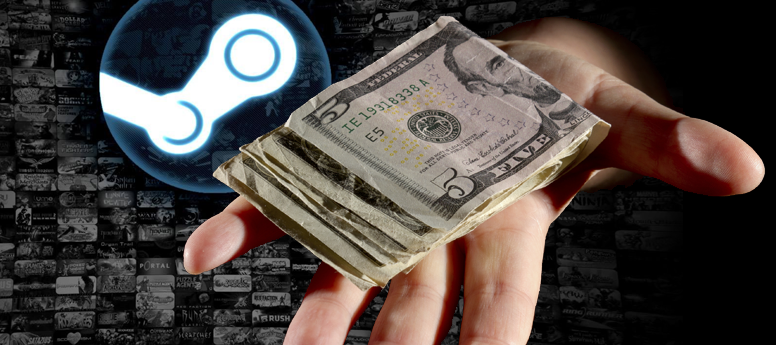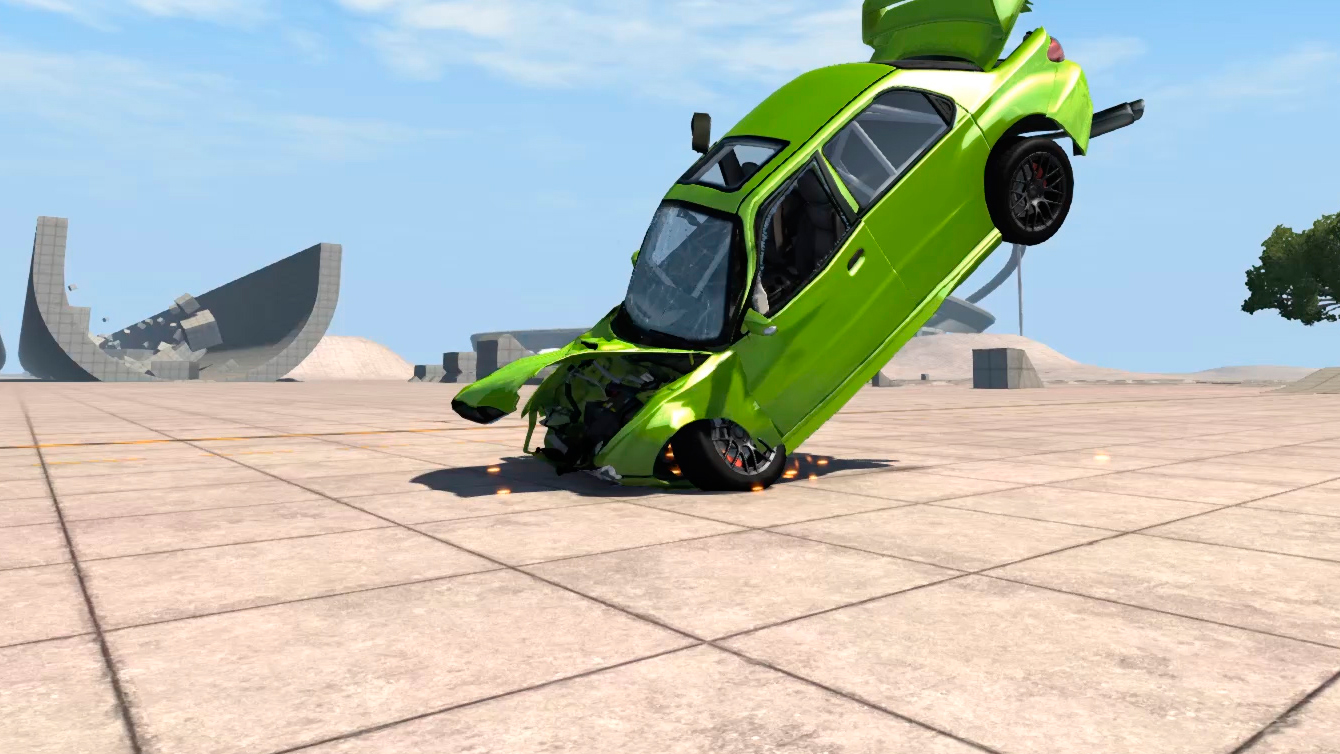Could Steam's refund policy have a weird effect on game design?

One of the least unique things about me is that I hate pre-order bonuses. It’s like buying DLC before playing the game the DLC is for. I want an exclusive glittery magic elf sword—who doesn’t?—but to get it I have to put money down on a game before I know if it’s any good, or if I can even run it. That’s dumb, and so I’m pretty happy this week, because Valve finally gave us some protection against botched launches and buggy games.
Steam’s refund policy has been dramatically expanded. In addition to being able to cancel a pre-purchase before the game releases, you can now request a refund within two weeks of release, provided you haven’t played for more than two hours. And that’s for any reason: I didn’t like it. It doesn’t run. I purchased it drunk. I forgot how to play games. Whatever.
The policy also applies to games you purchased after release, of course, but I’ve focused on pre-purchases because it takes power away from pre-order bonuses. I still advise caution, because two hours of play isn’t necessarily enough time to make an informed decision (I can easily spend two hours in the options menu, or in character creation), but it’s better than nothing. If the game simply doesn’t run on your machine, you can finally do something about it.
So, what's the problem?
Some games can be entirely finished in under two hours, which creates a potential problem that Valve has acknowledged. “Refunds are designed to remove the risk from purchasing titles on Steam—not as a way to get free games,” reads the FAQ. Valve may revoke the refund privileges of those who abuse the policy. What’s important here is how well Valve enforces its rules (and it’s annoying that it doesn’t spell out what ‘abuse’ means), and we’ll be paying close attention to that, as well as how quickly and fairly it approves reasonable refund requests. So far, so good: we tried, and it didn’t take too long to push a refund through for a legitimate reason.
Independent game developer Andrew Pellerano, however, has further concerns. Among other things (such as that refunds deposited to your Steam Wallet give developers nothing, while Valve recoups its share), Pellerano notes that Valve does not consider it abuse to refund a game purchased just before a sale and then buy it again at the cheaper price. From my perspective, that’s great. Are you ready for the first stress-free Steam Summer Sale? I am.
Naturally, Pellerano isn’t so keen on it, and he makes a fair point. “Your Steam sale now applies retroactively to the last 14 days of regular sales without any of the actual benefits of being on sale during those 14 days,” he writes. “Lower price at a lower volume from higher quality users. Your only protection from this is if you can get the player to log 2 hours as soon as possible.”
Valve does not consider it abuse to refund a game purchased just before a sale and then buy it again at the cheaper price.
I can see how that sucks for publishers and developers, especially smaller ones, but we’re both speculating here, and my version of the future doesn’t assume the worst. How many people are going to purchase a game within two weeks of a sale, play fewer than two hours of it, and then follow through and refund it? Pellerano imagines a Steam where this isn’t just commonplace, but actually changes how games are designed. He posits that the refund policy will encourage developers to “incentivize a 2 hour binge” so they can secure the sale, comparing it to the free-to-play business. “The impact this could have on Steam as a platform is severe and profound,” writes Pellerano.
Keep up to date with the most important stories and the best deals, as picked by the PC Gamer team.
I do imagine that certain games will be hit harder than others. How many buggy or disappointing Early Access games looked cool on paper, but didn’t keep you interested for more than two hours? I can think of a few. And could you get two hours of good fun out of BeamNG.drive, for instance, then return it and wait for the finished game? Maybe, and by doing that you don't help fund the development at all, which is supposed to help it become more fun. And during sales, when people load up on games they may never play, as Pellerano points out, how many will reconsider a week later and take their money back? There's no more buyer's remorse, and that’s worrying for developers.

It's hard for me to fret too much though, because I'm getting such a good deal. A two hour demo is exactly what I want. I can’t tell just from looking at a game whether or not I’ll like it. I can read reviews and get a sense of what I’m in for, but I don’t know. It’s true that some games are a slow burn—it took about two hours before I really came to like Lovely Planet, for example—but if I can’t even sense that there might be something to like in that amount of time, then hell yes I’ll take a refund.
I think a future where paid games adopt F2P principles to hold onto sales is possible, but I don't think it's likely to be so drastic. Take Xenonauts, for instance. It’s difficult, and takes a while to grasp, especially if you haven't played X-COM. It has 1,264 positive reviews, and 113 negative reviews. But a quick scan of the negative reviews reveals that most played it for more than two hours before expressing their opinion on it. Many played 15 or more before reviewing it, some over 100. I just don’t think PC gamers are so easy to predict. We can play games for over 100 hours and then give them a thumbs down. So I question whether anyone needs to rush to adopt free-to-play design ideas lest they be stripped of all future purchases by refund-happy customers.
I just don’t think PC gamers are so easy to predict.
I am sympathetic to Pellerano's concerns, because I know it’s hard as hell out there for an independent developer. And I do agree with some of his conclusions: a refund policy is necessary (and legally required in some places), Valve should explain what constitutes abuse, and Valve should probably stop rolling out features without running them by anyone first. Paid mods made Valve's customers unhappy, and this has ruffled some developer feathers, and in both cases, Valve just dropped it on everyone. There was no conversation, and I think Pellerano is right to be miffed.
If I have any other criticism, it’s that Valve took so long to institute any kind of policy (more than the option to cancel pre-purchases). GOG already had a 30-day refund policy. It’s not as sweeping—refunds are only offered on games that don’t run properly or include game-breaking bugs—but GOG sells games DRM-free, so access to the game isn’t revoked with the refund.
Origin also offers refunds on EA games and “participating third party titles,” and while its policy only gives you one week to decide, it’s preferable in another way. Rather than a two-hour play limit, refunds can be requested anytime within 24 hours of first launching the game, or 72 hours if it’s an EA game and technical reasons during launch are to blame (thanks for that, SimCity). A lot of games can be entirely experienced within 24 hours, though, so it would be absurd for Steam to offer that with its larger, more diverse library. Ori and the Blind Forest is not Dragon Age: Inquisition.
The last major holdout is Uplay, which only refunds downloads “under exceptional circumstances at its sole discretion.” I expect that this policy will change eventually, given that all of its competitors are making refunds standard.
And the precedent set this week by Valve is great for us: “You can request a refund for nearly any purchase on Steam—for any reason.” Rather than trailers and bullet points, games on Steam now have to sell themselves with two hours of play. It could have unintended consequences, which Pellerano has thoughtfully laid out, but as a non-developer, I have to love the new policy: The biggest distributor of PC games has decided that we deserve demos. That means no more wasting money on games we can't run, whether it's because our systems aren't up for it or they're just broken. That'll still be a frustration, but finally, it's not a waste of our money.

Tyler grew up in Silicon Valley during the '80s and '90s, playing games like Zork and Arkanoid on early PCs. He was later captivated by Myst, SimCity, Civilization, Command & Conquer, all the shooters they call "boomer shooters" now, and PS1 classic Bushido Blade (that's right: he had Bleem!). Tyler joined PC Gamer in 2011, and today he's focused on the site's news coverage. His hobbies include amateur boxing and adding to his 1,200-plus hours in Rocket League.

